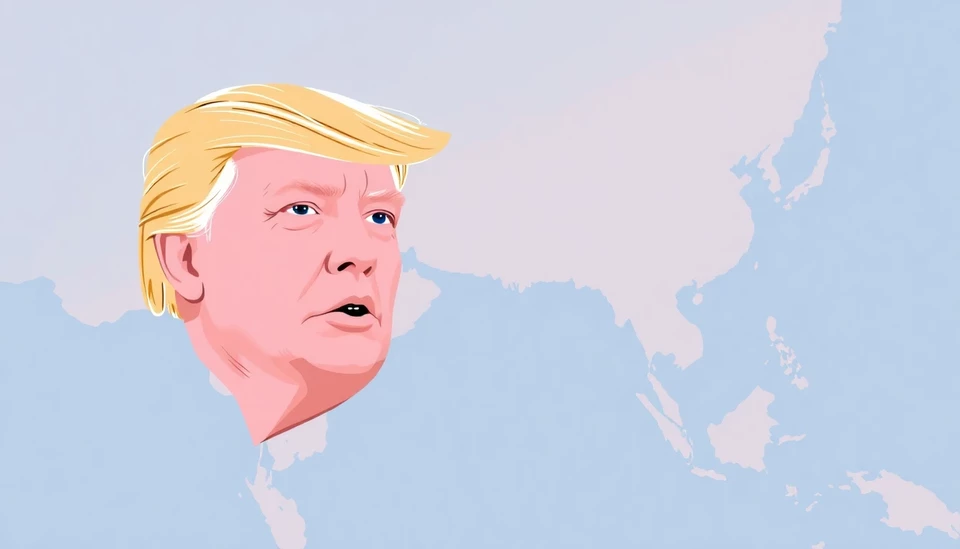
As the 2024 U.S. presidential elections approach, discussions surrounding the potential implications of a Donald Trump win have sparked significant interest in Asia. Political analysts and international observers are closely examining how a second term for Trump could reshape relationships with key nations in the region, particularly China and India.
Trump's first presidency already marked a period of heightened tensions and radical shifts in diplomatic strategies. If he were to secure a victory in the upcoming elections, the ramifications could extend far beyond American borders, influencing economic policies, security dynamics, and trade relationships across Asia.
In the case of **China**, a Trump administration is expected to return to its tough stance on trade. During his first term, Trump engaged in a trade war that escalated tariffs and caused significant disruptions in bilateral trade. This could mean a continuation or even intensification of sanctions against Chinese tech companies and increased pressure on America's allies to align against Beijing’s growing influence. Some experts believe this might provoke retaliatory measures from China, further straining relations and escalating tensions in regions like the South China Sea.
Meanwhile, **India**, which has cultivated closer ties with the United States in recent years, might find itself in a complex position. Trump has previously shown admiration for India and its Prime Minister, Narendra Modi, which may suggest the continuation of a robust U.S.-India partnership. However, the flip-side is that India's own ambitions in the Indo-Pacific could be challenged by a more aggressive U.S. posture towards China. The balance of power in the region is precarious, and India’s strategic responses will be crucial in navigating this potentially transformational period.
Moreover, other Southeast Asian nations could experience shifts in U.S. foreign policy which could affect their economic and security frameworks. Nations like **Vietnam**, **Indonesia**, and the **Philippines** will need to reassess their own strategies in light of Trump’s potential return. There’s speculation that these countries might lean more towards balancing their relationships between the U.S. and China, seeking to maximize benefits from both powers.
The podcast elaborates on these scenarios, indicating that a Trump victory could lead to an era characterized by increased militarization in Asia, as countries prepare for heightened security challenges. The listeners are reminded that the political landscape is continually changing, and responses from Asian governments could vary significantly based on evolving situations.
As analysts reflect on these ramifications, it is increasingly evident that a Trump presidency could usher in a new chapter of geopolitical complexity in Asia, challenging established norms and prompting countries to recalibrate their foreign policies. For businesses and policymakers in the region, this makes for a critical watchpoint leading up to the elections.
In conclusion, while the exact outcomes of a potential Trump victory remain uncertain, the discussions presented underscore the need for comprehensive and agile strategies among Asian nations to effectively navigate the shifting geopolitical tides.
#Trump #Asia #China #India #USPolitics #Geopolitics #SoutheastAsia #TradeWar #Elections2024
Author: Daniel Foster




